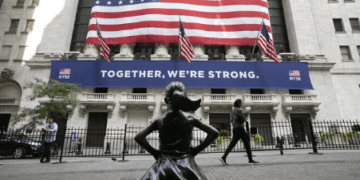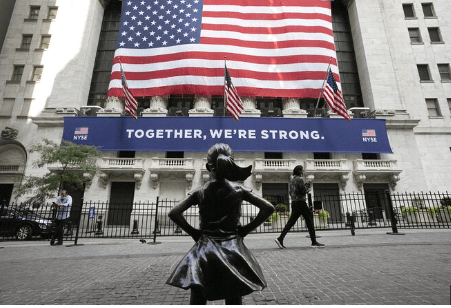Athira Sethu
Kochi, 9 April 2025
U.S. equities extended losses for the fourth straight day with the U.S. proceeding with plans to place 104% tariffs on Chinese imports. These tariff announcements are triggering fears about economic consequences as the S&P 500 tumbled to an all-time low of almost one year. Stocks have lost valuable worth, losing $5.8 trillion in value since the announcement of President Trump’s tariff last week.
The U.S. tariffs aimed primarily at Chinese products follow China’s counter-tariffs. In spite of the increasing tensions, the Trump administration is going ahead with the scheduled tariffs and has organized meetings with other big trading partners like Japan and South Korea. Nevertheless, there is no near-term priority in terms of negotiating with China, the second-largest economy in the world.
Several companies are already experiencing the impact of the increase in tariffs. Retailers have cautioned that prices will go up, with items such as shoes and electronics set to become pricier. Consumers are beginning to stock up on items ahead of the new tariffs kicking in, concerned about higher prices in the future. A case in point is Vietnamese-made running shoes, which will be substantially pricier once the 46% tariff on imports from Vietnam kicks in.
The sustained decline of the market is also threatening recession. Close aides of President Trump have even said he should think twice about it, but it is evident now that the administration has already ruled out altering course with the tariff approach. The tariff strategy as devised by President Trump is thought to be an abrupt departure from American trade policy, overthrowing the decades-old order of world trade.
Global responses are also warming up. Canada has already imposed its own tariffs in retaliation against the U.S. moves, and the European Union is weighing countermeasures, including tariffs on U.S. products like soybeans, nuts, and sausages. But the EU has said it is willing to negotiate with the U.S. to resolve the issue.
In spite of these global responses, President Trump insists on his strategy. He has indicated that the new tariffs will be used to deal with unfair trade practices and is intent on negotiating customized deals with specific nations. As world markets keep responding to these trade measures, the total impact of the tariffs on businesses and consumers alike is still unfolding.





















